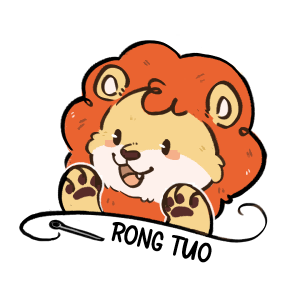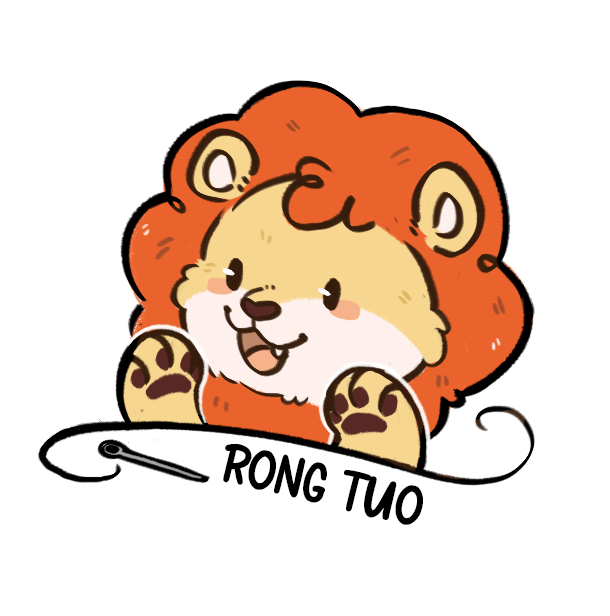The Psychology of Stuffed Toy Attachment
Soft Texture Triggers Soothing Responses
Cuddliness of stuffed animals is important to feeling! Studies have proven that the tactile experience of the soft texture can reduce stress and anxiety. Adults often tell us that they have sweet memories in their childhood being wrapped in those gentle feel-good textures. And we love that. It adds to the feel-good feeling. The soothing touch of a soft blanket replicates the feel of skin-to-skin contact, which can cause the hormone oxytocin to be released â promoting comfort and relaxation. Teddy bears with softer fur are perceived as more comforting, and this psychological perception is supported by a physiological response, findings that are applicable to the food experience research, researchers suggest (Journal of Positive Psychology, 2022). Therefore, the rich sense of touch of plush toys makes people feel good at all times in life.
Security Links to Caregiver Bonds
Soft toys usually represent the connection for a child to their family when they are at home and this is why they could be preferred even above parents in some occasions. In early life, these fluffy friends learn to feel secure and loved, which helps them retain these qualities and relationships as they age. When children exposed to teddy bear therapy during trauma showed significantly less-traumatic stress/ anxiety and fear, compensation and continuity of emotional climate among the stuffed toys could be inferred as having a significant influence in maintaining children’s emotional stability (UNICEF, 2019). Research seems to indicate that children who sleep with stuffed animals exhibit more secure and healthy types of attachment, which translates in a good quality of the caregiver-child relationship. Therefore, the existence of such plush symbols provides solid links to affection, security, and attachment theory, the building blocks for secure attachments that are necessary for emotional growth.
Anxiety Reduction Through Tactile Comfort
Stuffed animals provide a sense of security and presence which is why we want to make it easier for you to find stuffed animals for sale. It has been documented that clutching a soft plush toy can result in lower heart rates and a feeling of relaxation, which in turn reduces stress or anxiety, thus giving them a real emotional support factor. Tactile comfort from a stuffed animal has been clinically proven to help reduce anxiety in both children and adults, so they are a welcome addition to any emotional care plan. Examples such as teddy bear therapy have even had immediate success, as participants reported less fear, with higher prosocial interaction (Israeli Study, Teddy Bear Hospital, 1950s). Therefore, the soothing physical presence of plush companions remains an important intervention in the promotion of emotional strength at all ages.
Emotional Development Through Childhood Companions
Learning Self-Soothing Behaviors
Stuffed animals play an important role in the development of children’s self-soothing strategies. These snuggly buddies are a soft and cuddly way to help children cope with difficult situations. Developmental experts say touch-screen devices are a poor substitute for the kinds of tactile experiences the human is developmentally programmed to seek out; taking them away is needlessly depriving your baby of the very things he needs to develop, to grow and to thrive. According to a study published by Zero to Three, these self-soothing behaviors are crucial for emotional development, as they engage the parasympathetic nervous system (responsible for relaxation and contentment) and therefore help children learn how to manage their feelings.
Building Empathy via Roleplay
Interactions with stuffed toys are a child's first introduction to practicing empathy through amateur emotional role play. Children role-play: In role playing experiences children are able to engage in various plays and hence simulate social roles where they learn to put themselves in the place of others such as in the situation where someone is sad or excited. According to these child psychologists, this kind of imaginary play is essential to the ability of a child to understand others and know one’s own emotions. By ascribing emotions and personalities to their plush companions, children create the ability to identify and respond to emotional states in others. Such role-playing promotes empathy, but also boosts emotional intelligence because kids absorb and understand how their peers are feeling, and continue to learn more about the emotions of themselves and others.
Nostalgia and Lifelong Comfort Bonds
Tangible Connections to Childhood Memories
Stuffed animals are indeed the cherished memories from childhood days and childhood never dies. A lot of adults still keep these stuffed animals, there around personal stories that make them feel good and happy. Indeed, psychological studies indicate that nostalgia has stress-reducing and mood-raising effects. reconnecting with those experiences when they were a kid can become a source of soft, plushie comfort, through things like custom plush toys for some mini stuffed animals.
Innocence Symbols in Adult Life
Stuffed animals tend to symbolize a desire to return to the playfulness and the lack of complexity of youth. For most, the desire to own these plushies can serve as a form of self-expression and emotional support, offering a peaceful return to a simpler era of childhood. As for these small cues, the beneficial effects on mental health can be overwhelming, since they have such a strong capability for love and acceptance, unconditionally. Custom dog plush collections allow adults to creatively foster and build such comforting emotional bonds in their own personal life spaces.
Recreating Security Through Familiar Objects
For people of all ages, plush toys provide a source of security, a comforting representation of more secure times. Those characters are the ones that adults should consider bringing along from childhood - they are a bridge between past emotional states and present-life issues. These days, professionals emphasize that it's therapeutic to have familiar objects — including plush animals, of course — in times of stress. This sense of security provided by mini plush toys and personalised plush toys is crucial for emotional wellbeing and helps adults to recreate that comforting feeling, even when they are faced with life’s struggles.
Societal Acceptance of Stuffed Animal Affection
From Childhood Treasures to Adult Collectibles
Baby items have a new connotation other than being children’s toys and trinkets. This change of heart can be seen in plush-toy expos that are kind of exclusively for adult collectors and lovers of plush toys. The consensus of claims around the collectability of plush as one of the most treasured items by adults or furry lovies is noted, research having proven it, goes for adults who prefer plush toys in either a sentimental or an investment fashion. And now that plush toys are gaining a more grown-up vibe, adults have been more open to thinking of plush as something special, even adult-worthy for them.” This shift reflects an overall greater adult soft toy acceptance and helps add to the growth of custom plush stuffed animals and mini plush animals.
Celebrity Influence on Plush Culture
The trend of people accepting plush toys as grown ups are also be driven by celebrities! The trend in media portrayal of stuffed toys has also led to a more open display of affection for plush toys by celebrities. Plush toys being associated with popular celebrity and acceptable societal images, the demographic relation of receiving gifts, exchange, barter, deposits and so on. When like-minded celebrities demonstrate their love for custom dog plush or mini plush animals, their effect reverberates through endless generations of individuals, making the case that adults can still take pleasure in snuggling with these fuzzy critters. When plushy playthings are associated with fashionable fads and celebrity culture, the rest of society is more likely to accept that as part of adult reality.
FAQs
Why do adults find comfort in stuffed toys?
Adults find comfort in stuffed toys due to the emotional connections formed during childhood. The soft textures and nostalgia associated with plush toys trigger soothing responses, reducing stress and anxiety in adult life.
Can stuffed animals really help with anxiety?
Yes, stuffed animals can aid in reducing anxiety as holding them has been linked to decreased heart rates and enhanced relaxation. They provide tactile comfort that supports emotional resilience and relaxation.
How do stuffed toys contribute to a child's emotional development?
Stuffed toys help children learn self-soothing behaviors and develop empathy via roleplay. These activities teach children valuable coping mechanisms and social skills, which are crucial for emotional intelligence.
Are plush toys becoming more popular among adults?
Yes, plush toys are becoming increasingly popular among adults as collectibles and symbols of nostalgia. This trend is supported by societal shifts and celebrity endorsements that portray these items positively in adult life.
What role do celebrities play in plush toy culture?
Celebrities influence plush toy culture by openly embracing and showcasing their affection for stuffed toys. This promotes societal acceptance and normalizes the presence of plush toys in adult life.


